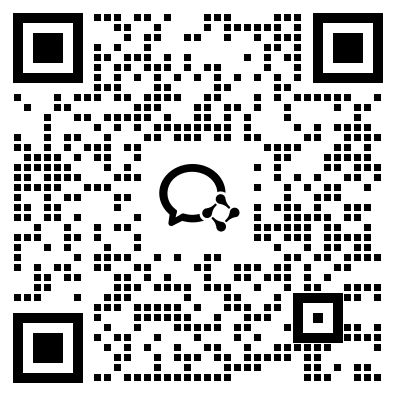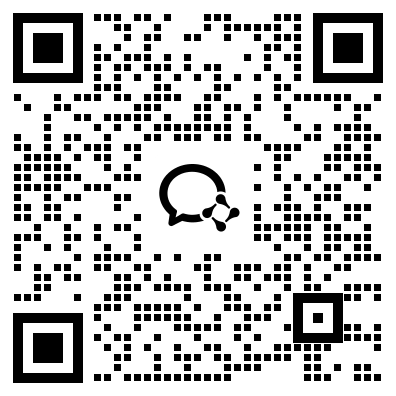考研201英语(一)在线题库每日一练(二百三十七)
摘要:以下是希赛网给大家分享考研201英语(一)在线题库每日一练,希望通过刷题可以帮助大家巩固重要知识点,对知识点查漏补缺,祝愿大家能顺利通过考试!
本文提供考研201英语(一)在线题库每日一练,以下为具体内容
1、Bankers have been blaming themselves for their troubles in public. Behind the scenes, they have been taking aim at someone else: the accounting standard-setters. Their rules, moan the banks, have forced them to report enormous losses, and it's just not fair. These rules say they must value some assets at the price a third party would pay, not the price managers and regulators would like them to fetch.Unfortunately, banks' lobbying now seems to be working. The details may be unknowable, but the independence of standard-setters, essential to the proper functioning of capital markets, is being compromised. And, unless banks carry toxic assets at prices that attract buyers, reviving the banking system will be difficult.After a bruising encounter with Congress, America's Financial Accounting Standards Board (FASB) rushed through rule changes. These gave banks more freedom to use models to value illiquid assets and more flexibility in recognizing losses on long-term assets in their income statements. Bob Herz, the FASB's chairman, cried out against those who “question our motives.” Yet bank shares rose and the changes enhance what one lobbying group politely calls “the use of judgment by management.”European ministers instantly demanded that the International Accounting Standards Board (IASB) do likewise. The IASB says it does not want to act without overall planning, but the pressure to fold when it completes its reconstruction of rules later this year is strong. Charlie McCreevy, a European commissioner, warned the IASB that it did “not live in a political vacuum” but “in the real world” and that Europe could yet develop different rules.It was banks that were on the wrong planet, with accounts that vastly overvalued assets. Today they argue that market prices overstate losses, because they largely reflect the temporary illiquidity of markets, not the likely extent of bad debts. The truth will not be known for years. But banks' shares trade below their book value, suggesting that investors are skeptical. And dead markets partly reflect the paralysis of banks which will not sell assets for fear of booking losses, yet are reluctant to buy all those supposed bargains.To get the system working again, losses must be recognized and dealt with. America's new plan to buy up toxic assets will not work unless banks mark assets to levels which buyers find attractive. Successful markets require independent and even combative standard-setters. The FASB and IASB have been exactly that, cleaning up rules on stock options and pensions, for example, against hostility from special interests. But by giving in to critics now they are inviting pressure to make more concessions.1.Bankers complained that they were forced to( ).2.According to the author, the rule changes of the FASB may result in ( ). 3.According to Paragraph 4, McCreevy objects to the IASB's attempt to ( ). 4.The author thinks the banks were “on the wrong planet” in that they ( ). 5.The author's attitude towards standard-setters is one of( ).
问题1
A、follow unfavorable asset evaluation rules
B、collect payments from third parties
C、cooperate with the price managers
D、reevaluate some of their assets
问题2
A、the diminishing role of management
B、the revival of the banking system
C、the banks' long-term asset losses
D、the weakening of its independence
问题3
A、keep away from political influences
B、evade the pressure from their peers
C、act on their own in rule-setting
D、take gradual measures in reform
问题4
A、misinterpreted market price indicators
B、exaggerated the real value of their assets
C、neglected the likely existence of bad debts
D、denied booking losses in their sale of assets
问题5
A、satisfaction
B、skepticism
C、objectiveness
D、sympathy
2、It's no surprise that Jennifer Senior's insightful, provocative magazine cover story, “I love My Children, I Hate My Life,” is arousing much chatter—nothing gets people talking like the suggestion that child rearing is anything less than a completely fulfilling, life-enriching experience. Rather than concluding that children make parents either happy or miserable, Senior suggests we need to redefine happiness: instead of thinking of it as something that can be measured by moment-to-moment joy, we should consider being happy as a past-tense condition. Even though the day-to-day experience of raising kids can be soul-crushingly hard, Senior writes that “the very things that in the moment dampen our moods can later be sources of intense gratification and delight.” The magazine cover showing an attractive mother holding a cute baby is hardly the only Madonna-and-child image on newsstands this week. There are also stories about newly adoptive—and newly single—mom Sandra Bullock, as well as the usual “Jennifer Aniston is pregnant” news. Practically every week features at least one celebrity mom, or mom-to-be, smiling on the newsstands. In a society that so persistently celebrates procreation, is it any wonder that admitting you regret having children is equivalent to admitting you support kitten-killing? It doesn't seem quite fair, then, to compare the regrets of parents to the regrets of the children. Unhappy parents rarely are provoked to wonder if they shouldn't have had kids, but unhappy childless folks are bothered with the message that children are the single most important thing in the world: obviously their misery must be a direct result of the gaping baby-size holes in their lives. Of course, the image of parenthood that celebrity magazines like Us Weekly and People present is hugely unrealistic, especially when the parents are single mothers like Bullock. According to several studies concluding that parents are less happy than childless couples, single parents are the least happy of all. No shock there, considering how much work it is to raise a kid without a partner to lean on; yet to hear Sandra and Britney tell it, raising a kid on their “own” (read: with round-the-clock help) is a piece of cake. It's hard to imagine that many people are dumb enough to want children just because Reese and Angelina make it look so glamorous: most adults understand that a baby is not a haircut. But it's interesting to wonder if the images we see every week of stress-free, happiness-enhancing parenthood aren't in some small, subconscious way contributing to our own dissatisfactions with the actual experience, in the same way that a small part of us hoped getting “the Rachel” might make us look just a little bit like Jennifer Aniston. 1.Jennifer Senior suggests in her article that raising a child can bring ( ). 2.We learn from Paragraph 2 that( ).3.It is suggested in Paragraph 3 that childless folks ( ). 4.According to Paragraph 4, the message conveyed by celebrity magazines is ( ). 5.Which of the following can be inferred from the last paragraph?
问题1
A、temporary delight
B、enjoyment in progress
C、happiness in retrospect
D、lasting reward
问题2
A、celebrity moms are a permanent source for gossip
B、single mothers with babies deserve greater attention
C、news about pregnant celebrities is entertaining
D、having children is highly valued by the public
问题3
A、are constantly exposed to criticism
B、are largely ignored by the media
C、fail to fulfill their social responsibilities
D、are less likely to be satisfied with their life
问题4
A、soothing
B、ambiguous
C、compensatory
D、misleading
问题5
A、Having children contributes little to the glamour of celebrity moms.
B、Celebrity moms have influenced our attitude towards child rearing.
C、Having children intensifies our dissatisfaction with life.
D、We sometimes neglect the happiness from child rearing.
3、The ethical judgments of the Supreme Court justices have become an important issue recently. The court cannot(1)its legitimacy as guardian of the rule of law(2)justices behave like politicians. Yet, in several instances, justices acted in ways that(3) the court's reputation for being independent and impartial. Justice Antonin Scalia, for example, appeared at political events. That kind of activity makes it less likely that the court's decisions will be(4)as impartial judgments. Part of the problem is that the justices are not(5) by an ethics code. At the very least, the court should make itself (6) to the code of conduct that (7) to the rest of the federal judiciary. This and other similar cases (8) the question of whether there is still a (9) between the court and politics. The framers of the Constitution envisioned law (10) having authority apart from politics. They gave justices permanent positions (11) they would be free to (12 )those in power and have no need to (13)political support. Our legal system was designed to set law apart from politics precisely because they are so closely (14) . Constitutional law is political because it results from choices rooted in fundamental social (15) like liberty and property. When the court deals with social policy decisions, the law it (16)is inescapably political—which is why decisions split along ideological lines are so easily (17) as unjust. The justices must (18) doubts about the court's legitimacy by making themselves (19) to the code of conduct. That would make rulings more likely to be seen as separate from politics and, (20), convincing as law.
问题1
A、emphasize
B、maintain
C、modify
D、recognize
问题2
A、when
B、lest
C、before
D、unless
问题3
A、restored
B、weakened
C、established
D、eliminated
问题4
A、challenged
B、compromised
C、suspected
D、accepted
问题5
A、advanced
B、caught
C、bound
D、founded
问题6
A、resistant
B、subject
C、immune
D、prone
问题7
A、resorts
B、sticks
C、loads
D、applies
问题8
A、evade
B、raise
C、deny
D、settle
问题9
A、line
B、barrier
C、similarity
D、conflict
问题10
A、by
B、as
C、though
D、towards
问题11
A、so
B、since
C、provided
D、though
问题12
A、serve
B、satisfy
C、upset
D、replace
问题13
A、confirm
B、express
C、cultivate
D、offer
问题14
A、guarded
B、followed
C、studied
D、tied
问题15
A、concepts
B、theories
C、divisions
D、conventions
问题16
A、excludes
B、questions
C、shapes
D、controls
问题17
A、dismissed
B、released
C、ranked
D、distorted
问题18
A、suppress
B、exploit
C、address
D、ignore
问题19
A、accessible
B、amiable
C、agreeable
D、accountable
问题20
A、by all means
B、at all costs
C、in a word
D、as a result
4、In the idealized version of how science is done, facts about the world are waiting to be observed and collected by objective researchers who use the scientific method to carry out their work. But in the everyday practice of science, discovery frequently follows an ambiguous and complicated route. We aim to be objective, but we cannot escape the context of our unique life experience. Prior knowledge and interest influence what we experience, what we think our experiences mean, and the subsequent actions we take. Opportunities for misinterpretation, error, and self-deception abound. Consequently, discovery claims should be thought of as protoscience. Similar to newly staked mining claims, they are full of potential. But it takes collective scrutiny and acceptance to transform a discovery claim into a mature discovery. This is the credibility process, through which the individual researcher's me, here, now becomes the community's anyone, anywhere, anytime. Objective knowledge is the goal, not the starting point. Once a discovery claim becomes public, the discoverer receives intellectual credit. But, unlike with mining claims, the community takes control of what happens next. Within the complex social structure of the scientific community, researchers make discoveries; editors and reviewers act as gatekeepers by controlling the publication process; other scientists use the new finding to suit their own purposes; and finally, the public (including other scientists) receives the new discovery and possibly accompanying technology. As a discovery claim works it through the community, the interaction and confrontation between shared and competing beliefs about the science and the technology involved transforms an individual's discovery claim into the community's credible discovery. Two paradoxes exist throughout this credibility process. First, scientific work tends to focus on some aspect of prevailing Knowledge that is viewed as incomplete or incorrect. Little reward accompanies duplication and confirmation of what is already known and believed. The goal is new-search, not re-search. Not surprisingly, newly published discovery claims and credible discoveries that appear to be important and convincing will always be open to challenge and potential modification or refutation by future researchers. Second, novelty itself frequently provokes disbelief. Nobel Laureate and physiologist Albert Azent-Gyorgyi once described discovery as “seeing what everybody has seen and thinking what nobody has thought.” But thinking what nobody else has thought and telling others what they have missed may not change their views. Sometimes years are required for truly novel discovery claims to be accepted and appreciated. In the end, credibility “happens” to a discovery claim—a process that corresponds to what philosopher Annette Baier has described as the commons of the mind. “We reason together, challenge, revise, and complete each other's reasoning and each other's conceptions of reason.” 1.According to the first paragraph, the process of discovery is characterized by its( ).2.It can be inferred from Paragraph 2 that credibility process requires ( ). 3.Paragraph 3 shows that a discovery claim becomes credible after it ( ). 4.Albert Szent-Gyorgyi would most likely agree that ( ). 5.Which of the following would be the best title of the test?
问题1
A、uncertainty and complexity
B、misconception and deceptiveness
C、logicality and objectivity
D、systematicness and regularity
问题2
A、strict inspection
B、shared efforts
C、individual wisdom
D、persistent innovation
问题3
A、has attracted the attention of the general public
B、has been examined by the scientific community
C、has received recognition from editors and reviewers
D、has been frequently quoted by peer scientists
问题4
A、scientific claims will survive challenges
B、discoveries today inspire future research
C、efforts to make discoveries are justified
D、scientific work calls for a critical mind
问题5
A、Novelty as an Engine of Scientific Development.
B、Collective Scrutiny in Scientific Discovery.
C、Evolution of Credibility in Doing Science.
D、Challenge to Credibility at the Gate to Science.
5、In the 2006 film version of The Devil Wears Prada, Miranda Priestly, played by Meryl Streep, scold her unattractive assistant for imagining that high fashion doesn't affect her. Priestly explains how the deep blue color of the assistant's sweater descended over the years from fashion shows to department stores and to the bargain bin in which the poor girl doubtless found her garment.This top-down conception of the fashion business couldn't be more out of date or at odds with feverish world described in Overdressed, Elizabeth Cline's three-year indictment of “fast fashion”. In the last decades or so, advances in technology have allowed mass-market labels such as Zara, H&M, and Uniqlo to react to trends more quickly and anticipate demand more precisely. Quicker turnarounds mean less wasted inventory, more frequent releases, and more profit. Those labels encourage style-conscious consumers to see clothes as disposable—meant to last only a wash or two, although they don't advertise that—and to renew their wardrobe every few weeks. By offering on-trend items at dirt-cheap prices, Cline argues, these brands have hijacked fashion cycles, shaking an industry long accustomed to a seasonal pace.The victims of this revolution, of course, are not limited to designers. For H&M to offer a $5.95 knit miniskirt in all its 2,300-plus stores around the world, it must rely on low-wage, overseas labor, order in volumes that strain natural resources, and use massive amounts of harmful chemicals.Overdressed is the fashion world's answer to consumer-activist bestsellers like Michael Pollan's The Omnivore’s Dilemma. “Mass-produced clothing, like fast food, fills a hunger and need, yet is non-durable, and wasteful,” Cline argues. Americans, she finds, buy roughly 20 billion garments a year—about 64 items per person—and no matter how much they give away, this excess leads to waste. Towards the end of Overdressed, Cline introduced her ideal, a Brooklyn woman named Sarah Kate Beaumont, who since 2008 has made all of her own clothes—and beautifully. But as Cline is the first to note, it took Beaumont decades to perfect her craft; her example can't be knocked off.Though several fast-fashion companies have made efforts to curb their impact on labor and the environment—including H&M, with its green Conscious Collection Line—Cline believes lasting change can only be effected by the customer. She exhibits the idealism common to many advocates of sustainability, be it in food or in energy. Vanity is a constant; people will only start shopping more sustainably when they can't afford not to.1.Priestly criticizes her assistant for her( ).2.According to Cline, mass-market labels urge consumers to ( ). 3.The word “indictment” (Line 3, Para.2) is closest in meaning to ( ). 4.Which of the following can be inferred from the last paragraph? 5.What is the subject of the text?
问题1
A、poor bargaining skill
B、insensitivity to fashion
C、obsession with high fashion
D、lack of imagination
问题2
A、combat unnecessary waste
B、shut out the feverish fashion world
C、resist the influence of advertisements
D、shop for their garments more frequently
问题3
A、accusation
B、enthusiasm
C、indifference
D、tolerance
问题4
A、Vanity has more often been found in idealists.
B、The fast-fashion industry ignores sustainability.
C、People are more interested in unaffordable garments.
D、Pricing is vital to environment-friendly purchasing.
问题5
A、Satire on an extravagant lifestyle.
B、Challenge to a high-fashion myth.
C、Criticism of the fast-fashion industry.
D、Exposure of a mass-market secret.
点击查看【完整】试卷>>延伸阅读

考研微信公众号

考研备考资料免费领取
去领取
- 3
- 0
- 0
 专注在线职业教育25年
专注在线职业教育25年









 扫描二维码
扫描二维码
 扫描二维码
扫描二维码








